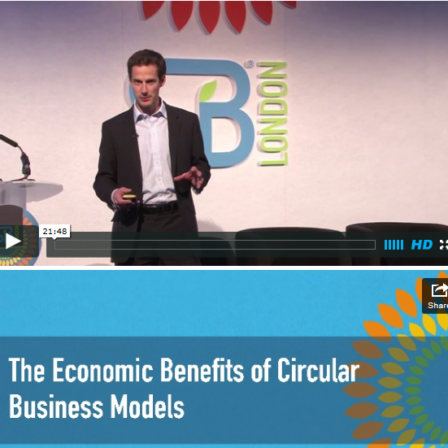For Finland, the circular economy could mean sustainable growth, greater competitiveness and more jobs, and a development path that might be followed for decades to come. All parties in the current government coalition agree on this. The methods for achieving this were discussed by a cross-party panel of MPs at Kaapelitehdas in Helsinki on 13 January 2014. The discussion panel formed part of the Circular Economy in Finland event organised by Sitra, which attracted more the 600 participants.
All MPs participating in the panel would be ready to incorporate elements of the circular economy into their party’s election programme and to promote it in the next government negotiations. The panellists included MPs Jouni Backman (SDP), Harri Jaskari (KOK), Ville Niinistö (Greens), Pirkko Ruohonen-Lerner (PS) and Kimmo Tiilikainen (KESK).
Although the markets play a key role in bringing about change, ambitious political goals and legislation are also important. They could be used to accelerate the transition to a new, more resource-efficient economy that generates zero waste for landfills.
”The circular economy crystallises the future vision of efficient use of resources providing a basis for economic growth. Resource efficiency must be embedded in all activities, from production to consumption,” Ville Niinistö reminded everyone at the panel discussion.
For example, the panellists would be ready to lower administrative barriers to the recycling of waste and to favour technological solutions that promote the circular economy when making public purchases, which account for more than 30 billion euros a year in Finland. The problem is that municipal decision-makers are engaged in reviewing and optimising at a micro level, making it harder to visualise the big picture and all of the opportunities on offer.
The panellists did not see eye to eye on the deployment of incentives. Whereas some were ready to use financial incentives to accelerate the markets and new business activities, Jouni Backman did not warm to new tax reductions or slowly chipping away at the VAT rate.
Global perspective is important
Several contributors to the discussion emphasised the need for a broad, global perspective. After all, Finland has world-class technological expertise and what it takes to develop solutions to major global problems. However, these are a hard sell on the world markets if the closest references we have for Finnish technologies are found in Sweden.
Commenting on the discussions from the corporate viewpoint were CEOs Pertti Korhonen of Outotec, Matti Lievonen of Neste Oil and board professional Kirsi Sormunen.
According to Sormunen, the circular economy will help Finland prepare for the challenges arising from world population growth and the growing scarcity of natural resources: ”The circular economy could help to step up the reuse of resources in Finland to an entirely new level.”.
The CEOs tried to infuse some boldness into the decision-makers: ”Why does Finland still have less ambition to promote the circular economy and low-carbon solutions than other Nordic countries?” Outotec’s Pertti Korhonen asked.
As an answer, all the politicians had to offer was lack of courage and daring. Over-cautiousness and a lack of skills in public procurement is just one example of this.
”We need legislation that enables the piloting of new solutions. Civil servants want to play it safe by taking the traditional route,” said Harri Jaskari, summarising the panellists’ views. He also pondered whether it should be mandatory for municipalities to commit a certain percentage of their purchases to funding new practical trials.
Energy policy resembles social and healthcare services – a comprehensive solution is needed
”Finland markets itself as a specialist in cleantech, but where does this show in the Helsinki capital region, for example?” asked CEO Matti Lievonen of Neste Oil.
Both the panellists and CEOs agreed that the Helsinki capital region needs a carbon-neutral energy solution. If no consensus can be reached at local level, the government should step in.
”Heating without imported coal is one issue that needs to be resolved in the capital region one way or another. This is a big issue for the entire country,” said Kimmo Tiilikainen.
The circular economy is about much more than recycling: it is also about putting services before ownership. In this change of attitude, consumers will play a key role.
According to Pirkko Ruohonen-Lerner, consumers appreciate it when things are easy, so the change must be made as painless as possible for them: ”I think that people are ready to change their consumption habits in favour of a more sustainable approach. We need more information on the options available and their effects. Product quality also needs to be enhanced, for example by making warranty periods longer.”




Recommended